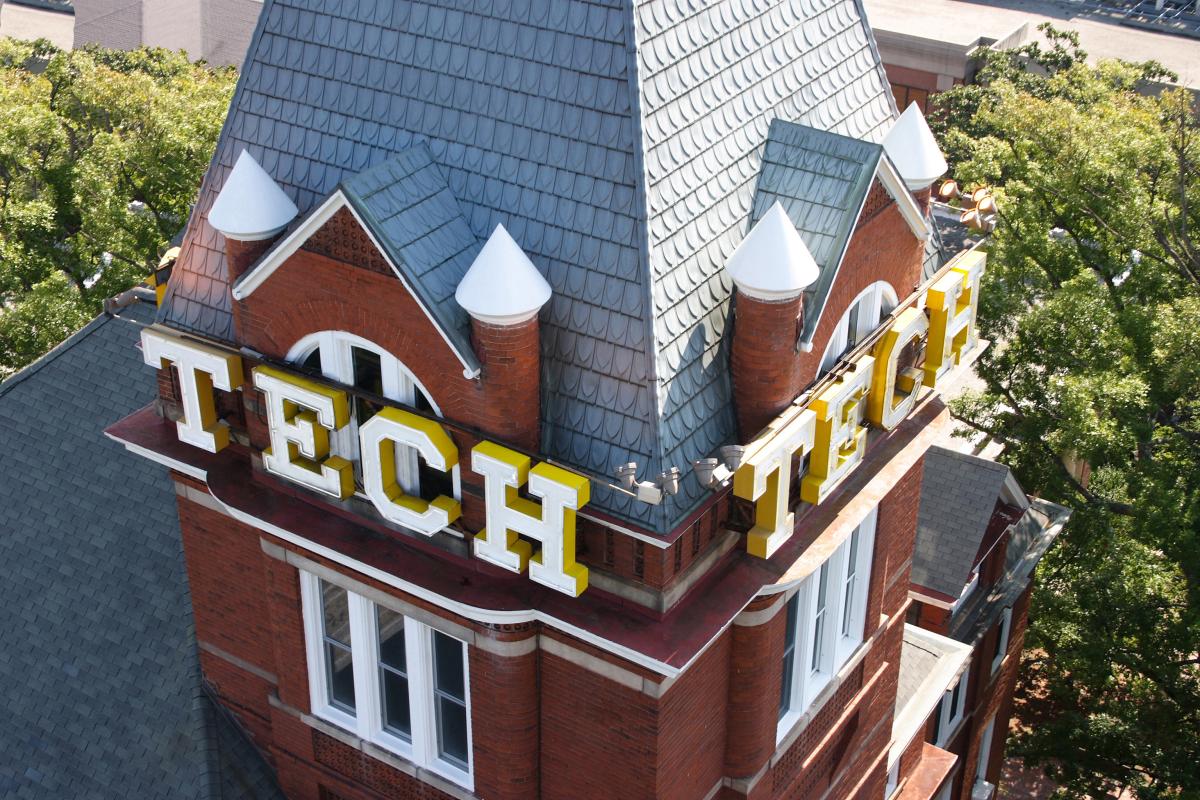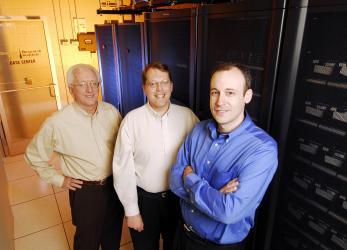
Imagine that one of the world’s most powerful high performance computers could be packed into a single rack just 24 inches wide and powered by a fraction of the electricity consumed by comparable current machines. That would allow an unprecedented amount of computing power to be installed on aircraft, carried onto the battlefield for commanders – and made available to researchers everywhere.
The task of being able to fit such a computer with such power into such a small package, with an energy efficient power source has been given to the new DARPA Ubiquitous High Performance Computing (UHPC) initiative. This challenge will test the fabric of existing computing paradigms, so logically Georgia Tech researchers are supporting the key components of this operation. If the UHPC can meet their goals in the given eight year time hack, it will redefine how computing systems are developed.
“Our team is developing a set of five difficult problems of a size and scope that the machines they are talking about should be able to accomplish,” said Dan Campbell, a GTRI principal research engineer. These five problems amplify the computing needs of the U.S. military:
- Analysis of the vast streams of data originating with widespread sensor systems, unmanned aerial vehicles and new generations of radar systems. The data will be analyzed for nuggets of useful information in ways that are not possible today.
- A dynamic graph challenge, in which many entities interact to create a problem of “connecting the dots.” That could mean analyzing relationships in social media to find possible adversaries, or understanding network traffic for cyber-security challenges.
- The decision tree, comparable to a chess game in which many possible interconnected options, each with complex implications, must be analyzed quickly. This could help field commanders or corporate CEOs make better decisions.
- Materials shock and hydrodynamics issues, challenges important to improving future generations of materials.
- Molecular dynamics simulations, which use high-performance computers to understand interactions between very large systems, such as protein folding.
"We need to be able to take in a lot more data and understand it a lot more thoroughly than we can now," said Mark Richards, a principal research engineer in the Georgia Tech School of Electrical and Computer Engineering and co-principal investigator of the benchmarking team. "That might allow us to find adversaries we can't find now because we're unable to tease that information out of the data flow."
